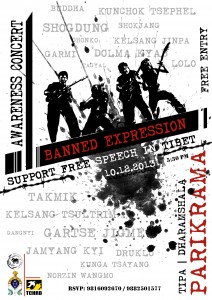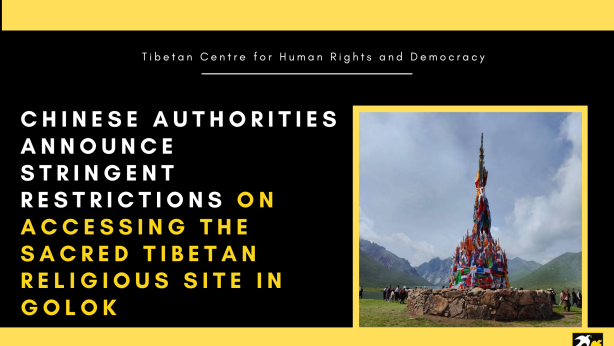Banned Expression: Campaign to protect free speech in Tibet
 ‘Banned Expression: Support Free Speech in Tibet’ is an awareness campaign focussing on the Right to Freedom of Opinion, Expression and Information in Tibet.
‘Banned Expression: Support Free Speech in Tibet’ is an awareness campaign focussing on the Right to Freedom of Opinion, Expression and Information in Tibet.
Over a hundred Tibetan writers, poets, artists, intellectuals and cultural figures have been arrested, tortured and imprisoned since the 2008 uprising in Tibet. By daring to refute China’s official narrative of events surrounding the 2008 Uprising, these courageous Tibetans represent a significant new challenge to the Chinese authorities.
China is implementing mass surveillance and propaganda campaigns under the rubric of Chinese president Xi Jinping’s “mass line” policy in Tibet. New regulations on the internet and phone use have been implemented since 2011 to block information and censor communication. Book and journals are banned; websites shut down and online contents deleted and censored in real time by armies of Chinese government censors. China has vowed again to block all images, information and teachings of His Holiness the Dalai Lama in Tibet by setting “nets in the sky” and “traps on the ground” .
To highlight the fast shrinking space for writers and artists to freely and fearlessly express their views and to pressure China to respect Tibetan rights, Tibetan Centre for Human Rights and Democracy, in partnership with Voice of Tibet and Tibetan Institute of Performing Arts, is running the Banned Expression campaign on social media and on official websites of the organisers.
The campaign will culminate in an awareness concert fronted by Parikrama, one of India’s most respected rock bands on 10 December 2013, which is observed internationally as Human Rights Day. The focus of our message on the 64th International Human Rights Day is the Right to Freedom of Opinion, Expression and Information. A new report, ‘Banned Expression: Stifling Dissent and Creativity in Tibet’, will be released at the event.
Our campaign page on Facebook can be accessed at https://www.facebook.com/freespeechtibet


